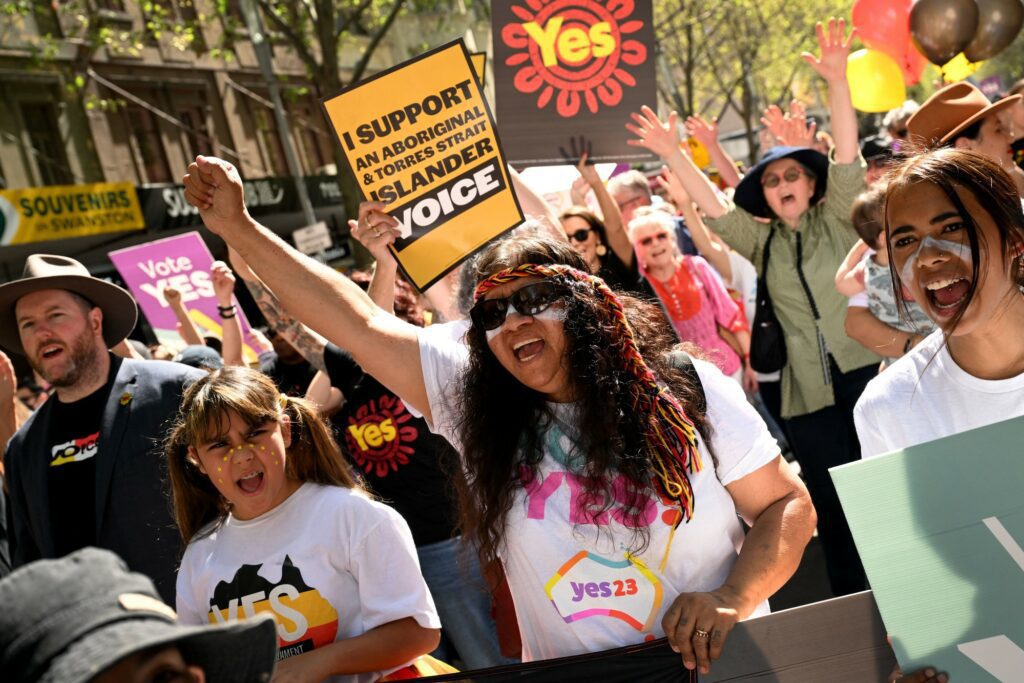The rights to freedom of expression and peaceful assembly were restricted. Hundreds of refugees and asylum seekers were arrested and forced to relocate to camps and abandon their livelihoods. Violent attacks on persons with albinism increased. LGBTI people faced discrimination. Cyclones left hundreds dead and over 659,000 displaced; women were at increased risk of gender-based violence in displacement camps. There were signs that the cholera outbreak was easing.
Freedom of expression and assembly
On 30 August, former MP Bon Kalindo was arrested when he delivered a court order to the district commissioner’s office. The order confirmed that a protest planned for the following week could proceed, after it was blocked by the district council. He was released the next day after a court suspended his arrest warrant. On 7 September, he led peaceful protesters on a march to State House to deliver a petition calling for the president’s resignation. When another group threw stones at the peaceful protesters, police dispersed the demonstration with tear gas.
In May, the president told journalists that he was committed to upholding the constitution by respecting freedom of expression. Two weeks later, Francis Mzindiko, a Times Group newspaper journalist, was attacked by supporters of the ruling Malawi Congress Party after he filmed them fighting with members of another party in Blantyre.
Refugees’ and migrants’ rights
In March, the government ordered all refugees and asylum seekers to return to Dzaleka refugee camp by 15 April or face enforced relocation. In May, police arrested hundreds of them from their homes and businesses in the capital Lilongwe, relocating them to the camp. Police confiscated property and demanded bribes from some of them, and many had to abandon their livelihoods. Dzaleka camp, believed to host over 50,000 refugees, had a capacity for 12,000, while around 8,000 lived just outside the camp. UNHCR, the UN refugee agency, said healthcare services and water and sanitation facilities were inadequate.
Discrimination
Crimes against persons with albinism, including reports of attempted abductions, physical attacks and desecration of graves, increased. In May, Ajasi Salim from the southern village of M’boola sustained injuries in an attack. In June, Tony Robert’s grave was violated in M’maliha village in Blantyre; police and local community members confirmed that only his torso remained. Standing Voice, a rights NGO, documented three attempted abductions of children under 10, including a one-year-old. Only one arrest was made in all reported cases.
LGBTI people’s rights
In July, religious leaders held national demonstrations, attended by cabinet ministers, to protest against the decriminalization of consensual same-sex sexual conduct. The protests were triggered by a case before the constitutional court in which Wim Akster and Jana Gonani, a local transgender woman, challenged penal code provisions criminalizing such behaviour, and under which Jana Gonani had been convicted in 2021. The case was adjourned in August and no judgment delivered by the end of the year. LGBTI rights organization Nyasa Rainbow Alliance (NRA) said that the participation of influential individuals in the protests led to increased discrimination in relation to LGBTI people’s access to basic services, including healthcare. Speech advocating hatred against NRA staff and LGBTI people also increased.
Right to a healthy environment
On 13 March, a state of disaster was declared when Cyclone Freddy struck for the second time in one month. At least 679 people died and 659,278 were displaced by heavy rains that destroyed roads, homes, crops and livestock in the south. The Disaster Management Affairs and the Department of Climate Change and Meteorological Services (government bodies) took steps to increase public awareness about the impact of heavy rainfall, targeting flood-prone areas. The government relocated at-risk households to areas less vulnerable to flooding.
Women’s and girls’ rights
High rates of unemployment, poverty and natural disasters exposed women to sexual exploitation, trafficking and gender-based violence. The Malawi Human Rights Commission recorded abuses including gender-based violence (54), sexual exploitation (23) and child marriage (34) against women and girls displaced into camps by Cyclone Freddy.
In July, the government disclosed that 18 women had been repatriated to Malawi out of over 300 who had been lured with fake job offers to Oman, where they suffered abuses including rape, torture, appalling conditions and poor pay.
Right to health
The government took measures, including monitoring water quality and promoting public awareness, to address the cholera outbreak. In August, it said that there had been no new reported cases for 14 days in the 26 affected districts since March 2022. As of 15 December, the outbreak had affected 59,114 people, of whom 1,771 died.
Source link : https://www.amnesty.org/en/location/africa/southern-africa/malawi/report-malawi/
Author :
Publish date : 2021-08-19 21:33:46
Copyright for syndicated content belongs to the linked Source.
